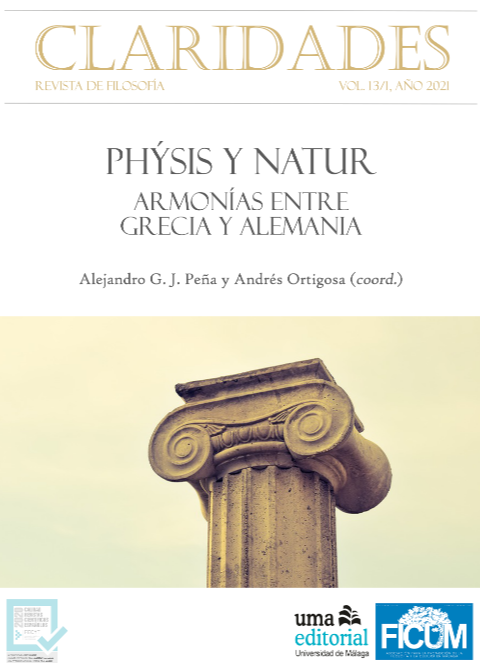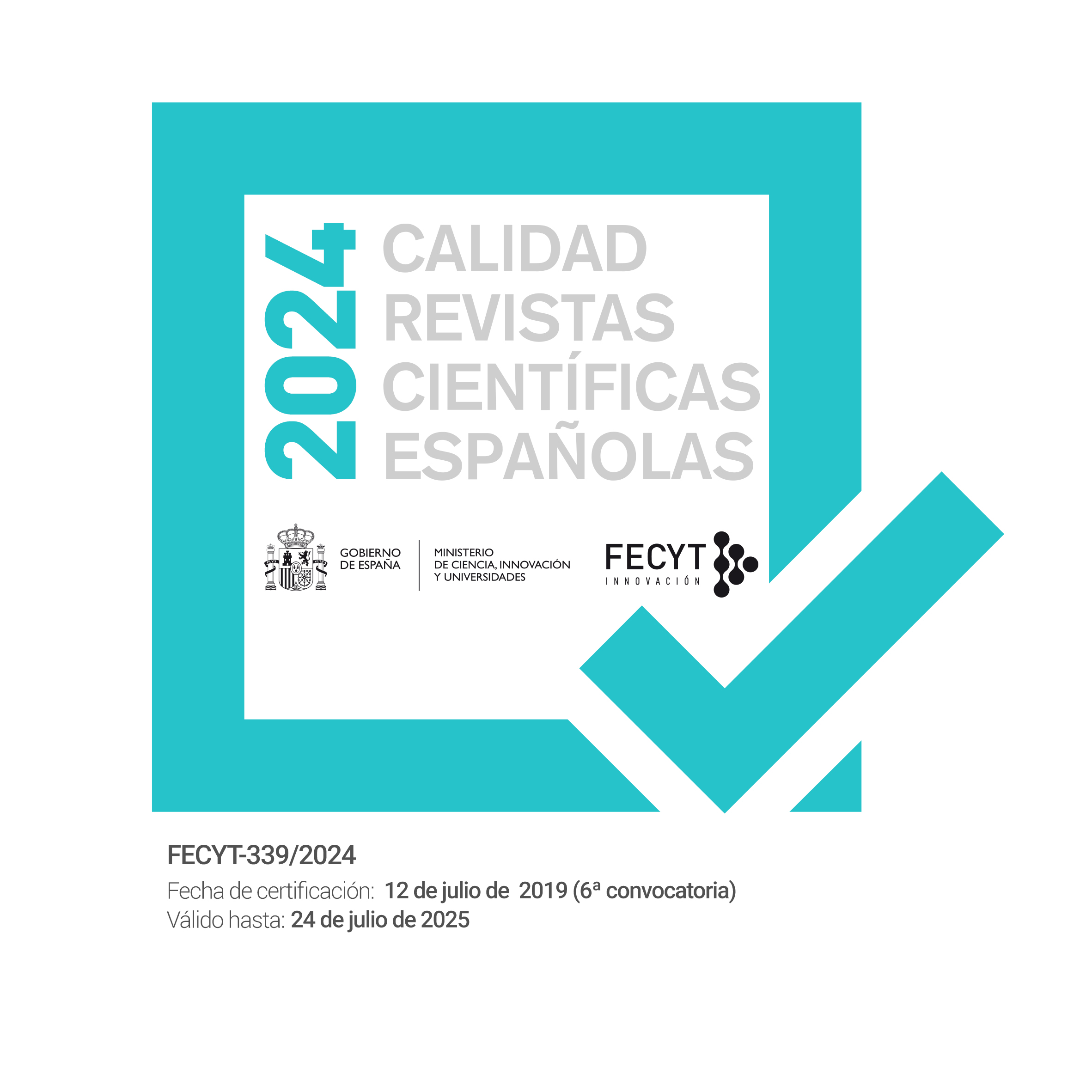Rethinking the onto-theo-logy today
A dialogue with Gianni Vattimo
DOI:
https://doi.org/10.24310/Claridadescrf.v13i1.11611Keywords:
Metaphysics, Onto-theo-logy, Pensiero dêbole, Hermeneutical Communism, NihilismAbstract
The thought of Gianni Vattimo, father of the pensiero débole, is consciously situated within the framework of a history of metaphysics, which has in Nietzsche and Heidegger, two of the most outstanding representatives of one of its turns or high points. The pensiero débole, redefined in his latest writings as hermeneutical communism, corresponds to a new milestone in this history of metaphysics that is nothing other than the history of Western onto-theo-logy, where the concepts of Being and God, configure the entire space of that fundamental science or philosophy, metaphysics, founded by Aristotle, reconfigured by Thomas Aquinas,
criticized by Nietzsche and redefined by Heidegger.
Downloads
Metrics
Publication Facts
Reviewer profiles N/A
Author statements
Indexed in
-
—
- Academic society
- N/A
- Publisher
- Asociación para la promoción de la filosofía y la cultura en Málaga (FICUM) y UMAEditorial
References
Gabriel, M. (2013): Por qué el mundo no existe. Barcelona: Pasado & Presente.
Girard, R. (1986): El chivo expiatorio. Barcelona: Editorial Anagrama.
Girard, R. (2005): La violencia y lo sagrado. Barcelona: Editorial Anagrama.
Ferraris, M. (2012): Manifiesto del nuevo realismo. Buenos Aires: Ariadna Hidalgo Editores.
Han, B.-C. (2013): La sociedad de la transparencia. Barcelona: Herder.
Heidegger, M. (1978): «Die Kategorien und Bedeutungslehre des Duns Scotus» en Frühe Schriften (1912-1916) (GA 1). Frankfurt am Mein: Klostermann.
Heidegger, M. (2000): Vorträge und Aufsätze (GA 7). Frankfurt am Mein: Klostermann.
Heller, A. (1995): Ética General. Madrid: Centro de Estudios Constitucionales.
Jonas, H. (1995): El principio de responsabilidad. Ensayo de una ética para la civilización tecnológica. Barcelona: Herder.
Steiner, G. (1987): Antígonas: una poética y una filosofía de la lectura. Barcelona: Gedisa.
Taylor, C. (2014): La era secular. Barcelona: Gedisa, 2 vols.
Vattimo, G. (1963): Essere, Storia e Linguaggio in Heidegger. Turin: Edizione «di Filosofia».
Vattimo, G. (1989): El sujeto y la máscara. Nietzsche y el problema de la liberación. Barcelona: Península.
Vattimo, G. (1986): Las aventuras de la diferencia. Pensar después de Nietzsche y Heidegger. Barcelona: Península.
Vattimo, G. (1989): Más allá del sujeto. Nietzsche, Heidegger y la hermenéutica. Barcelona: Paidós.
Vattimo, G. (1987a): Introducción a Nietzsche. Barcelona: Península.
Vattimo, G. (1987b): El fin de la modernidad. Barcelona: Gedisa.
Vattimo, G. (1991): Ética de la interpretación. Barcelona: Paidós.
Vattimo, G. (1990): La sociedad transparente. Barcelona: Paidós.
Vattimo, G. (1996): Creer que se cree. Barcelona: Paidós.
Vattimo, G. (2002): Diálogos con Nietzsche. Ensayos 1961-2000. Barcelona: Paidós.
Vattimo, G. (2008): No ser Dios. Un diálogo a cuatro manos. Barcelona: Paidós.
Vattimo (2013): De la realidad. Barcelona: Herder.
Weischedel, W. (1983): Der Gott der Philosophen. Grundlegung einer Philosophischen Theologie im Zeitalter des Nihilismus. Darmstadt: Wissenschaftliche Buchgesellschaft.
Zambrano, M. (2012): La tumba de Antígona y otros textos sobre el personaje trágico. Madrid: Cátedra.
Downloads
Published
How to Cite
Issue
Section
License
Esta revista provee acceso libre inmediato a su contenido bajo el principio de hacer disponible gratuitamente la investigación al público. Todos los contenidos publicados en Claridades. Revista de Filosofía, están sujetos a la licencia Creative Commons Reconocimento-NoComercia-Compartirigual 4.0 cuyo texto completo puede consultar en <http://creativecommons.org/licenses/by-nc-sa/4.0>
Es responsabilidad de los autores/as obtener los permisos necesarios de las imágenes que están sujetas a derechos de autor.
Los autores/as cuyas contribuciones sean aceptadas para su publicación en esta revista conservarán el derecho no exclusivo de utilizar sus
contribuciones con fines académicos, de investigación y educativos, incluyendo el auto-archivo o depósito en repositorios de acceso abierto de cualquier tipo.
La edición electrónica de esta revista esta editada por la Editorial de la Universidad de Málaga (UmaEditorial), siendo necesario citar la procedencia en cualquier reproducción parcial o total.

















6.png)
